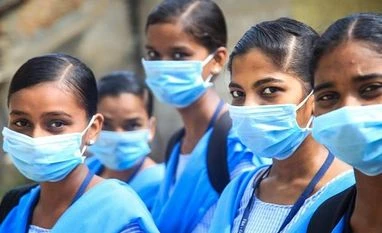Researchers have cautioned that it is critical to understand how the novel coronavirus, which causes the disease Covid-19, affects kids, in order to model the pandemic accurately, limit its spread, and ensure that the youngest patients get the care they need.
The clinicians, including Steven L Zeichner from the University of Virginia Health System in the US, said a small percentage of children infected with the coronavirus become seriously ill, adding that those at high risk are babies and preschoolers.
"Many infectious diseases affect children differently than adults and understanding those differences can yield important insights," the scientists wrote in a commentary, published in the journal Pediatrics.
"This will likely be true for Covid-19, just as it was for older infectious diseases," they said.
According to the researchers, subgroups of children seem to be at greater risk of Covid-19 complications, particularly those who are younger, immunocompromised, or have other lungs-related health problems.
However, they said, the presence of other viral infections in up to two-thirds of childhood coronavirus cases makes it very difficult to assess the true effect of Covid-19 on children.
The researchers cautioned that children, even when not showing any symptoms, could play a "major role" in disease transmission.
Citing an example from an earlier study, they said the virus remained in children's stool for several weeks after diagnosis.
They wrote in the commentary that this risk, combined with other routes of transmission such as nasal secretions, could pose a major challenge for schools, day care centers and the children's families.
"Since many children infected with Covid-19 appear to have have mild symptoms, or even no symptoms at all, it is important to practice all the social distancing, hygiene and other precautions being recommended by public health authorities to minimize transmission from children to others," they noted.
Those at risk of contracting the disease from children include family members who may be at greater risk from the infection, such as grandparents or family members with chronic medical conditions, Zeichner said.
"In addition, studies of the reasons why children are affected differently than adults by the infection may yield insights that can be helpful in understanding the disease and ways to treat or prevent it," he said.
To read the full story, Subscribe Now at just Rs 249 a month
Already a subscriber? Log in
Subscribe To BS Premium
₹249
Renews automatically
₹1699₹1999
Opt for auto renewal and save Rs. 300 Renews automatically
₹1999
What you get on BS Premium?
-
Unlock 30+ premium stories daily hand-picked by our editors, across devices on browser and app.
-
Pick your 5 favourite companies, get a daily email with all news updates on them.
Full access to our intuitive epaper - clip, save, share articles from any device; newspaper archives from 2006.
Preferential invites to Business Standard events.
Curated newsletters on markets, personal finance, policy & politics, start-ups, technology, and more.
Need More Information - write to us at assist@bsmail.in
)